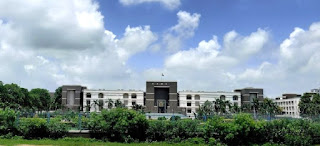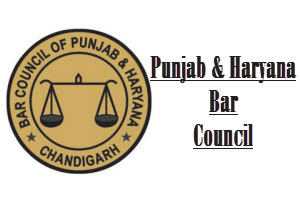आज मैं मोटर दुर्घटना दावा मामले में कदाचार, धोखाधड़ी, झूठे दस्तावेज जमा करने और गैर-आकस्मिक चोटों में झूठे सबूत बनाने और पुलिस के साथ झूठी शिकायत दर्ज करने के बाद प्राप्त पुरस्कार- निर्णय पर चर्चा करूंगा।
मोटर दुर्घटना मुआवजे के आवेदन में फर्जीवाड़े, फर्जी दस्तावेज, दुर्घटना मुआवजा दिलाने के लिए झूठी शिकायतें की जा रही है.
पिछले कुछ वर्षों में फर्जी मोटर दुर्घटना दावों की मात्रा में वृद्धि हुई है। कुछ दावे धोखे से दायर किए जाते हैं और बीमा कंपनी की लापरवाही के कारण, ऐसे फर्जी मामले किसी विशेष जांच से पहले रिपोर्ट नहीं किए जाते हैं। और बीमा कंपनी पर को ऐसे कलेईम में पैसा चुकाना पडता है।
भले ही इस तरह के झूठे मुआवजे के आवेदन, धोखाधड़ी द्वारा प्राप्त पुरस्कार-निर्णय को आमतौर पर उच्च न्यायालय में चुनौती दी जाती है, जिस कंपनी के खिलाफ नामदार उच्च न्यायालय में निर्णय दिया गया होता है उसी आदेश का 30 प्रतिशत या कम ज्यादा रकम जमा करने का आदेश अपील दायर करते है।और उक्त राशि को ट्रिब्यूनल में जमा किया जाना होता है। जबकि कई मामलों में, धोखाधड़ी के ऐसे मामलों में पूरी राशि की प्रतिपूर्ति बीमा कंपनी द्वारा आवेदक को की जाती है क्योंकि कई में मामलों में, वीमा कंपनी को धोखाधड़ी पुरस्कार के दस्तावेजों के सत्यापन या प्रामाणिकता का भी पता नहीं था।
अब ऐसे मामलों में गुजरात हाईकोर्ट ने अभी अभी जजमेन्ट दीया है जिससे कंपनी को काफी राहत मिलती है.
अब मैं उस फैसले पर चर्चा करूंगा जिसे ट्रिब्यूनल में ही इस तरह के फर्जी फैसले के खिलाफ चुनौती दी जा सकती है।
लेकिन इन सभी मामलों में निर्णय के बाद भी मोटर दुर्घटना दावा न्यायाधिकरण गुजरात उच्च न्यायालय द्वारा इस तरह के एक महत्वपूर्ण फैसले को रिमांड कर सकता है, अब मैं आज इसके बारे में चर्चा करूंगा।
लेकीन अभी ईन सभी कीस्सेमे एवोर्ड होनेके बाद भी मोटर एकसीडन्ट कलेईम ट्रीब्युनल अपना दीया हुवा एवोर्ड फीरसे विचाराधीन करखे रीमान्ड कर शकता है एसा महत्व पूर्ण जजमेन्ट डो गुजरात हाईकोर्टने अभी अबी दीया ईसके बारेमें आजमें चर्चा करुंगा।
यदि दावेदार धोखाधड़ी करता है तो मोटर दुर्घटना दावा न्यायाधिकरण अपने ही आदेश वापस ले सकता है: गुजरात हाईकोर्ट
यदि दावेदार धोखाधड़ी करता है तो मोटर दुर्घटना दावा न्यायाधिकरण अपने ही आदेश वापस ले सकता है: गुजरात हाईकोर्ट
गुजरात हाईकोर्ट ने स्पष्ट किया कि जब मोटर दुर्घटना दावा न्यायाधिकरण ( Motor Accident Claims Tribunal) के समक्ष मामले में दावेदार पक्षकार ट्रिब्यूनल के साथ धोखाधड़ी करता है तो ट्रिब्यूनल को अपना आदेश वापस लेने का अधिकार है, जिसके द्वारा उसने राहत दी थी।
जस्टिस गीता गोपी ने कहा,
"पुनर्विचार आवेदन सीपीसी के आदेश 47(1) के तहत आने से बच जाएगा, क्योंकि यह रिकॉर्ड पर स्पष्ट त्रुटि है। अन्यथा, जैसा कि ड्राइवर और मालिक द्वारा धोखाधड़ी की गई तो ट्रिब्यूनल के पास अपने आदेश को वापस लेने की शक्ति है।"
बीमा कंपनी द्वारा वर्तमान आवेदन दायर किया गया था, जिसमें ट्रिब्यूनल के उस आदेश को चुनौती दी गई थी जिसमें उसकी पुनर्विचार याचिका को खारिज कर दिया गया था। इस याचिका में दावेदार के पक्ष में इस आधार पर अवार्ड वापस लेने की मांग की गई थी कि दावेदार का दुर्घटना की तारीख पर बीमा नहीं किया गया था और उसने जाली बीमा दस्तावेज बनाए थे।
हाईकोर्ट ने कहा कि ट्रिब्यूनल ने पुनर्विचार आवेदन को खारिज कर दिया, क्योंकि बीमा कंपनी ने दावा याचिका में अपना लिखित बयान भी दाखिल नहीं किया। इसके अलावा, विवादित दस्तावेज को मामले में साक्ष्य के रूप में पेश नहीं किया गया, इसलिए पुनर्विचार आवेदन खारिज कर दिया गया।
कोर्ट ने दावा न्यायाधिकरण को साक्ष्य के स्तर से दावा याचिका पर नए सिरे से विचार करने का निर्देश दिया।
अनीता बनाम रामबिलास मामले पर भरोसा करते हुए कहा गया:
"यदि यह साबित हो जाता है कि पक्षकार में से एक ने अदालत में धोखाधड़ी की है तो केवल सीपीसी की धारा 151 के तहत पुनर्विचार याचिका पर सुनवाई की जा सकती है।"
ऑर्डर डाउनलोड करने के लिए यहां क्लिक करें
https://drive.google.com/file/d/1COjfWSvQMRiUZsfTrtBvFx2nVMTxbILy/view?usp=sharing












.png)





